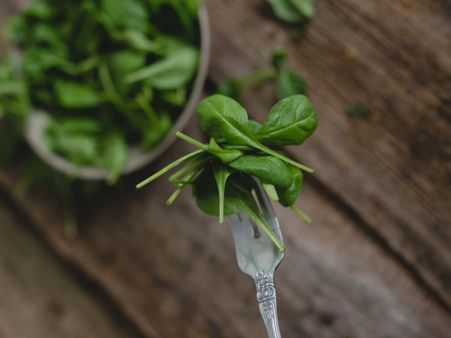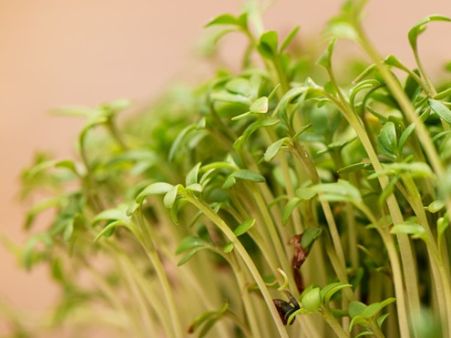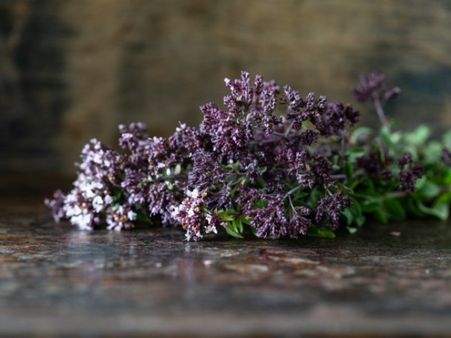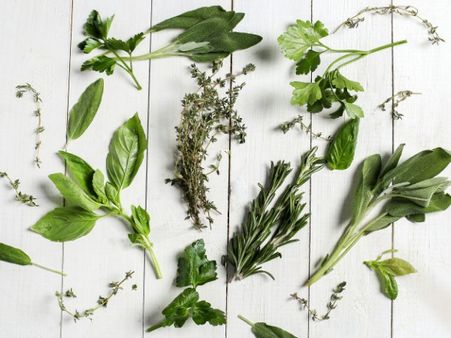Just In
- 41 min ago

- 1 hr ago

- 3 hrs ago

- 11 hrs ago

Don't Miss
- Movies
 Devara Part 1: Jr NTR To Groove With Pooja Hegde In Janhvi Kapoor-Starrer Actioner For A Special Song; Details
Devara Part 1: Jr NTR To Groove With Pooja Hegde In Janhvi Kapoor-Starrer Actioner For A Special Song; Details - Sports
 ONE Friday Fights 59 Results: Yamin Beats Ouraghi In Freak Stoppage, Yodthongthai Topples Petnamngam
ONE Friday Fights 59 Results: Yamin Beats Ouraghi In Freak Stoppage, Yodthongthai Topples Petnamngam - News
 Bengaluru Traffic Alert: Avoid These Roads On April 20 Between 1 PM To 7 PM
Bengaluru Traffic Alert: Avoid These Roads On April 20 Between 1 PM To 7 PM - Automobiles
 Ford Mustang 60th Anniversary Package – Limited To Just 1,965 Units
Ford Mustang 60th Anniversary Package – Limited To Just 1,965 Units - Technology
 Confirmed List of Products Launching at Xiaomi Smarter Living 2024
Confirmed List of Products Launching at Xiaomi Smarter Living 2024 - Finance
 Daily Relative Strength Index RSI In A Bullish Mode of This Pharma Stock; Buy For TP Rs 635-685
Daily Relative Strength Index RSI In A Bullish Mode of This Pharma Stock; Buy For TP Rs 635-685 - Education
 Exam Pressure Does Not Exist; Studying Punctually is Crucial; Says Aditi, the PSEB 2024 Topper
Exam Pressure Does Not Exist; Studying Punctually is Crucial; Says Aditi, the PSEB 2024 Topper - Travel
 Journey From Delhi To Ooty: Top Transport Options And Attractions
Journey From Delhi To Ooty: Top Transport Options And Attractions
All The Leaves You Can Eat: A Complete Guide To Edible Healthy Leaves
Leafy vegetables are one of the healthiest groups of veggies out there. Many of these leaves are already a part of the Indian diet. For example, spinach is a green leafy vegetable that has always been used as an ingredient in many Indian dishes such as saag panner, dal palak etc. We have some more on the list, like, sarso, methi, bathua, to name a few. From spices to herbs, the list talks about all the healthy leaves you can eat.
Today, Boldsky will tell you all about the different kinds of healthy edible leaves that are not just spinach and kale.
Healthy Edible Leaves You Should Add To Your Diet Today!

Below is a list of some of the healthiest edible leaves you can consume.
(1) Spinach: Spinach is a healthy vitamin K food containing a high source of calcium and nitrates. It is an excellent source of vitamin A, required for the production of healthy epithelial tissues, which line the small filtration tubes within the kidneys and urinary tract [1]. Spinach is also rich in iron, fibre, low in fat and cholesterol. It is good for weight control, eyes, bones, and blood pressure.
(2) Fenugreek: Considered as the richest sources of folic acid and zinc, consuming fenugreek leaves can do wonders for your overall health [2]. They are also a rich source of antioxidants, which help the body fight several infections, and is good for the hair, digestion and anaemia [3].
(3)
Mint:
Mint
leaves,
commonly
known
as
pudina,
is
one
of
the
widely
used
aromatic
plants.
These
leaves
make
excellent
mouth
freshers
for
those
who
suffer
from
a
problem
of
bad
breath.
It
helps
to
cool
down
the
stomach
and
improves
digestion
as
well.
Pudina
is
not
just
used
for
culinary
purposes
but
also
for
medicinal
purposes.
The
plant
also
possesses
therapeutic
properties
[4].
(4) Cabbage: Richer than oranges in Vitamin C, cabbages give you plenty of roughage to keep your bowel movements regular [5]. Packed with phytochemicals, this cruciferous vegetable help break up free radicals before they can do damage to your body. Cabbages are high in vitamin K and fibre and are also a good source of vitamin B6 and folic acid.


...
(5) Watercress: Packed with nutrients that help boost immunity and prevent cancer, watercress stands out as being the superfood with multiple benefits. Simply put, watercress contains more iron than spinach, more vitamin C than oranges and more calcium than a glass of milk.

(6) Cilantro (coriander leaves): The deluge of benefits offered by this taste-enhancing leaves are that they may help lower your blood sugar, fight infections, and promote heart, brain, skin, and digestive health.
(7) Arugula: Arugula is commonly known as garden rocket or rocket salad and denominated as a superior leafy green compared to the other leafy green assortments. Ranging from detoxification of the body to resisting cancer, the miracle leafy green helps in the absorption of minerals to augment athletic performance.

(8) Bok choy: A staple in Asian cuisine, bok choy is one of the healthiest types of green vegetables. Loaded with nutritional value and high beta-carotene content compared to other leafy vegetables, bok choy is slowly becoming an integral part of a healthy diet. In ancient Chinese medicine, it was used as a healing element in treating cough, fever and similar ailments [6].


...
(9) Curry leaves: Curry leaves have lots of health benefits like preventing indigestion and aiding weight loss. They also help your hair grow faster and thicker. Chewing raw curry leaves or drinking a cup of curry leaves tea every day can prevent weight gain and reduce body cholesterol as these leaves help in cleansing the body by flushing out harmful toxins [7].
(10) Mustard greens: Mustard greens are a popular green leafy vegetable in India. These mustard plant leaves have a spicy flavour and have lots of vitamin A that help improves skin and eyes' health and are also rich in antioxidants.
(11) Lettuce: Lettuce is low in calories, fat and sodium. It is a good source of fibre, iron, folate, and vitamin C. It is a good source of various other health-beneficial bioactive compounds.
(12) Asparagus: Asparagus contains aspartic acid, which aids in neutralizing excess ammonia found in your bodies, which can contribute to weakness. It is also a rich source of vitamin C and E and folate [8].
(13) Red amaranth: It can help improve cardiovascular health, strengthens bones and stops hair loss [9]. Red amaranth is a vegetable best enjoyed in salads and has twice as much calcium as milk and much more zinc than eggs.

...
(14) Chard: Chard is a green leafy vegetable that is extremely rich in Vitamin K. It also has very little calories, making it a suitable addition to your weight loss diet [10].
(15) Kale: Kale has more iron than beef, and it gives you a boost of various minerals. Kale has zero trans fats and cholesterol. It gives you plenty of roughage to fill your stomach and help you lose weight.
(16) Collard greens: Collard greens are similar in texture to kale and cabbage and are a good source of calcium and vitamins A, B9 and C [11]. These leaves are one of the best sources of vitamin K, which may reduce blood clots and promote healthy bones.
(17) Beetroot leaves (beet greens): Beet greens can help promote healthy bones, teeth, skin and improve the functioning of the blood vessels due to the rich antioxidant content. Beet greens are edible green leaves found on the tip of beets.
(18) Spring onions (onion greens): These are an excellent source of vitamin C and calcium. Spring onions are also a good source of dietary fibre and vitamins A and B6, thiamine, folate and minerals (potassium, copper, chromium, manganese, iron).


...
(19) Oregano: Oregano is probably the only leafy source of omega-3 fatty acids for vegans. It also contains plenty of Vitamin K and antioxidants [12].
(20) Thyme: Thyme is a greatly beneficial herb for digestion. It is particularly useful for digesting red meat. It also helps improve bowel movements and avoids flatulence. Thyme is packed with vitamin C and is also a good source of vitamin A [13].
(21) Rosemary: The herb rosemary is a natural pain reliever and also helps cure migraine headaches. Rosemary may help boost your memory and immunity and is a rich source of antioxidants and anti-inflammatory compounds, which are thought to help boost the immune system and improve blood circulation [14].
(22) Betel leaf: In India, betel leaf is commonly used as a mouth freshener to be eaten after meals. Betel leaves help ease digestion and may protect you against respiratory diseases [15].
(23) Parsley: A nutritious herb, parsley is packed with antioxidants that can help ease your stress levels. Studies assert that consuming foods with good antioxidant levels may help prevent stress and low levels of anxiety.
(24) Basil leaves: Also known as Saint Joseph's wort, basil is the world's most sacred, healthiest and effective medicinal Ayurvedic herb. The queen of herbs is packed with medicinal values and nutrients. There are around 35 different types of basil species, and the most common amongst them is the holy herb which can be used to cure more than 300 different ailments [16].

(25) Dandelion leaves: Dandelions are famous for being rich in calcium and iron. They also contain many trace minerals like manganese, phosphorus and potassium [17].

On A Final Note…
Now that you are a healthy edible leaf expert, why not plan the next grocery shopping list with more leaves in it. Keep in mind avoiding overcooking these leaves, as that will reduce the water content and its overall health quotient.
-
 nutritionTop 12 Foods That Are Rich In Folate
nutritionTop 12 Foods That Are Rich In Folate -
 wellnessEating This Leafy Vegetable Too Much Can Put You At Heart Attack Risk!
wellnessEating This Leafy Vegetable Too Much Can Put You At Heart Attack Risk! -
 home n gardenHow To Keep Spinach (Palak) Leaves Fresh In Indian Summer, Winter And Monsoon?
home n gardenHow To Keep Spinach (Palak) Leaves Fresh In Indian Summer, Winter And Monsoon? -
 nutritionHealth Benefits Of Malabar Spinach (Basale Leaf): Good For Digestion, Fertility, Heart And More
nutritionHealth Benefits Of Malabar Spinach (Basale Leaf): Good For Digestion, Fertility, Heart And More -
 recipesSpinach And Goat Cheese Recipe: How To Prepare It At Home
recipesSpinach And Goat Cheese Recipe: How To Prepare It At Home -
 prenatalHealthy Foods To Eat During The Third Trimester Of Pregnancy
prenatalHealthy Foods To Eat During The Third Trimester Of Pregnancy -
 nutritionSpinach: Nutrition, Health Benefits And Recipe
nutritionSpinach: Nutrition, Health Benefits And Recipe -
 wellness6 Healthy Ways To Eat Spinach
wellness6 Healthy Ways To Eat Spinach -
 nutritionAmazing Carrot, Spinach & Lemon Juice For Removing Toxins From The Body
nutritionAmazing Carrot, Spinach & Lemon Juice For Removing Toxins From The Body -
 nutritionWorld Blood Donor Day 2018: Benefits Of Spinach, Banana, And Date Smoothie For Boosting Iron
nutritionWorld Blood Donor Day 2018: Benefits Of Spinach, Banana, And Date Smoothie For Boosting Iron -
 wellness9 Foods That Detox Your Body
wellness9 Foods That Detox Your Body -
 nutrition14 Foods Rich In Zinc For Good Health
nutrition14 Foods Rich In Zinc For Good Health


 Click it and Unblock the Notifications
Click it and Unblock the Notifications



